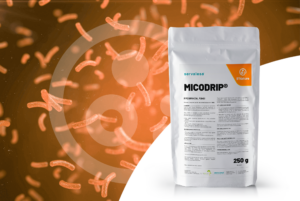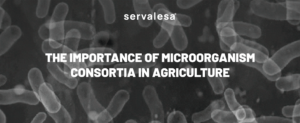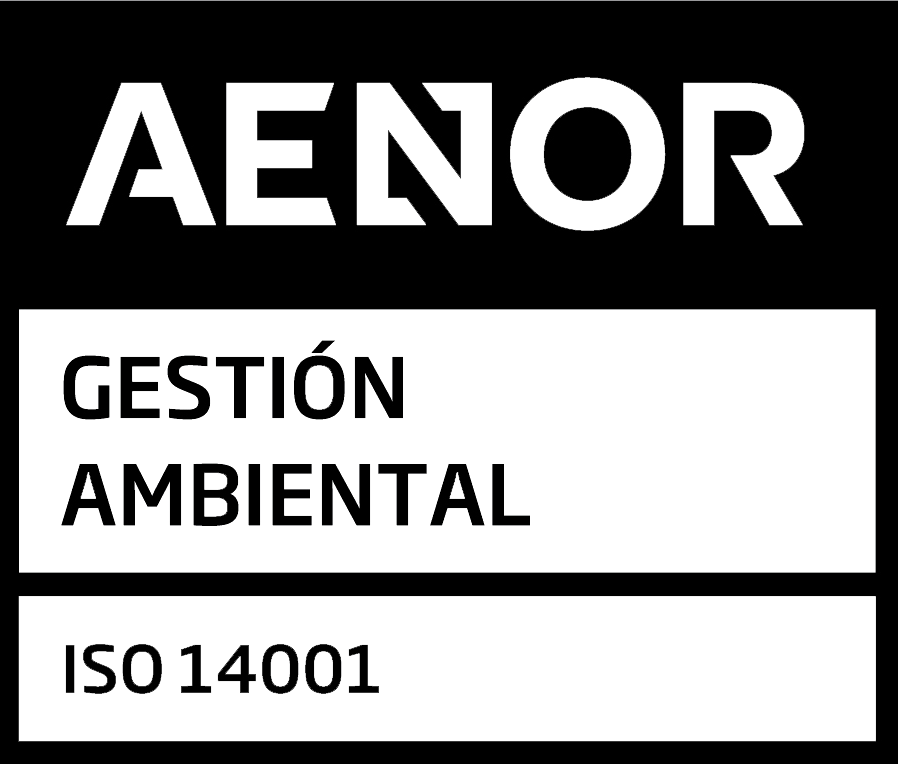Modern agriculture faces us with the great challenge of satisfying a growing demand in terms of quality and quantity of fruits and vegetables. We are increasingly becoming global consumers (6 billion people populate the world) and according to the most recent estimates of the United Nations, we will be more than 8.5 billion in 2025. In addition to growing in quantity, our demand is also growing in quality. We are becoming more and more demanding in terms of organoleptic characteristics, exemption from phytosanitary products, etc.
In this context, biostimulant products are of vital importance. These are products of diverse origin (natural, microbial…) that act on the physiological and biochemical processes of plants through different routes, improving vigor (aerial part and/or root system), productivity, harvest quality and providing the crop with the necessary tools to face diseases and physiopathologies in a very effective way.
In Servalesa, a reference company in the biostimulants market, we offer the widest variety of products in this segment (in terms of origin, function…), providing farmers and technicians with a deep knowledge of their uses and applications.
At Servalesa, we have developed protocols that provide tools with biostimulant power for each phenological stage of the different crops with a more than proven efficacy.
ROOTING AND START OF CULTIVATION
It is essential to start biostimulation of horticultural crops from the moment of transplanting. Seedlings have to endure great stress as a consequence of adapting to the new conditions that exist in the cultivation plot. New conditions from the environmental, telluric, nutritional and pest and disease pressure point of view.
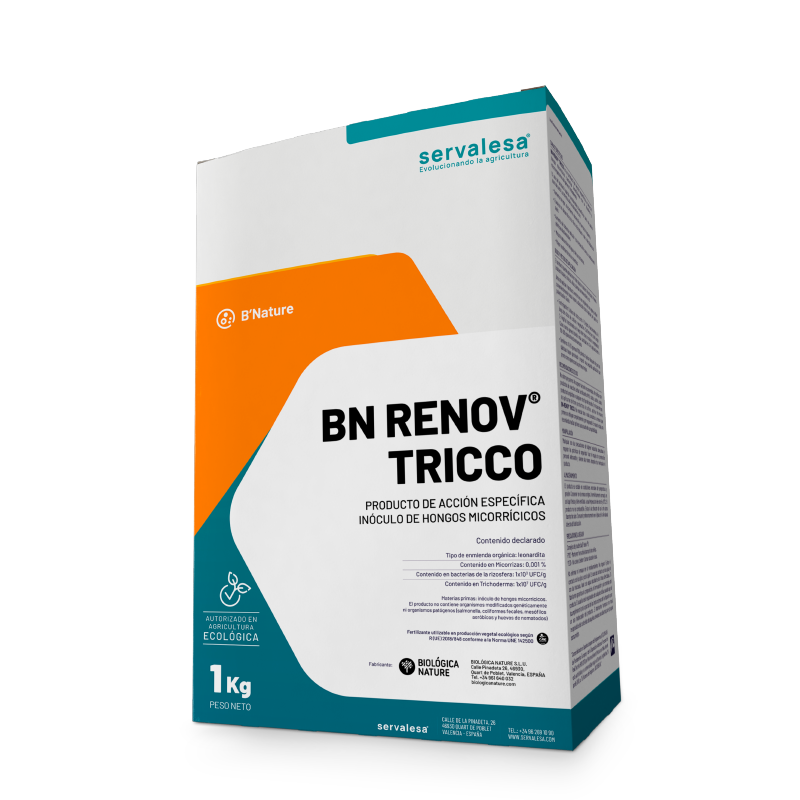

To make adaptation to the new environment much easier, Servalesa offers farmers MAS RAIZ® + and RENOV® TRICCO, products with biostimulant registration and focused on promoting optimal development of the root system.
VEGETATIVE DEVELOPMENT
Once we have achieved a good implantation of the crop, it is essential to continue with biostimulation. We must obtain adult plants with adequate size and vigor, both in the aerial part and in the root system. It will be easier for these crops to cope with all types of abiotic stress (climatic, osmotic, sanitary, nutritional…) and to support the maximum number of fruits, which will be the basis for maximum potential productivity and profitability of the crop.
At this stage of horticultural crops, from Servalesa we recommend to continue adding beneficial microorganisms to our rhizosphere with RENOV® MICRO as a basis for biostimulation of processes and biocontrol of diseases.
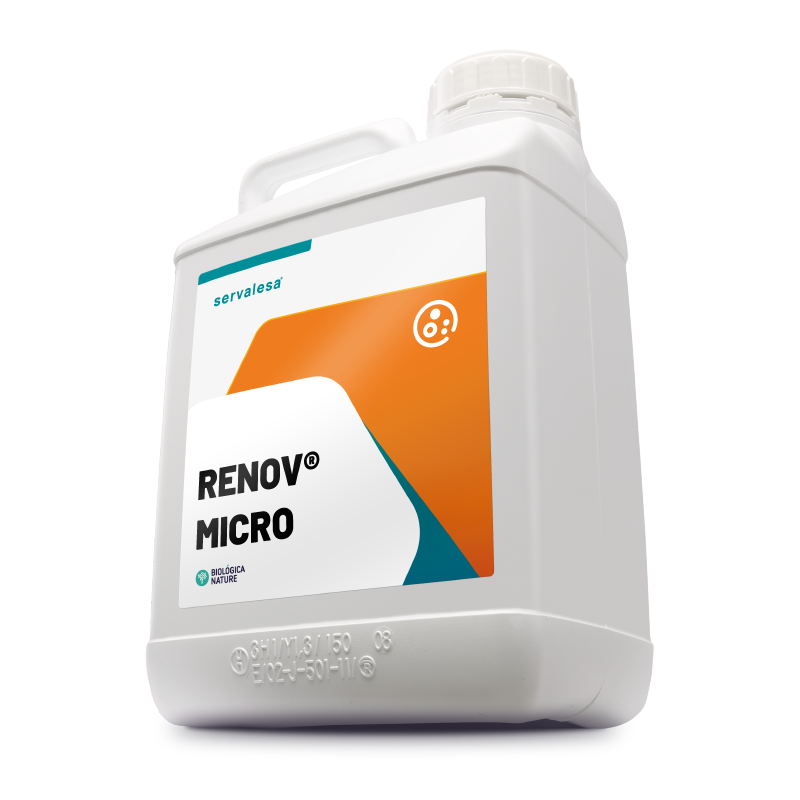
The interaction of these microorganisms with the root system brings us innumerable benefits: they provide plants with a greater amount of essential macro and microelements (nitrogen, phosphorus, potassium, iron…); they occupy an ecological niche in our soils that can be used by pathogenic fungi and nematodes, thus creating competition for space and nutrients; or they provide a large number of beneficial substances as a result of their metabolism; among many other benefits.
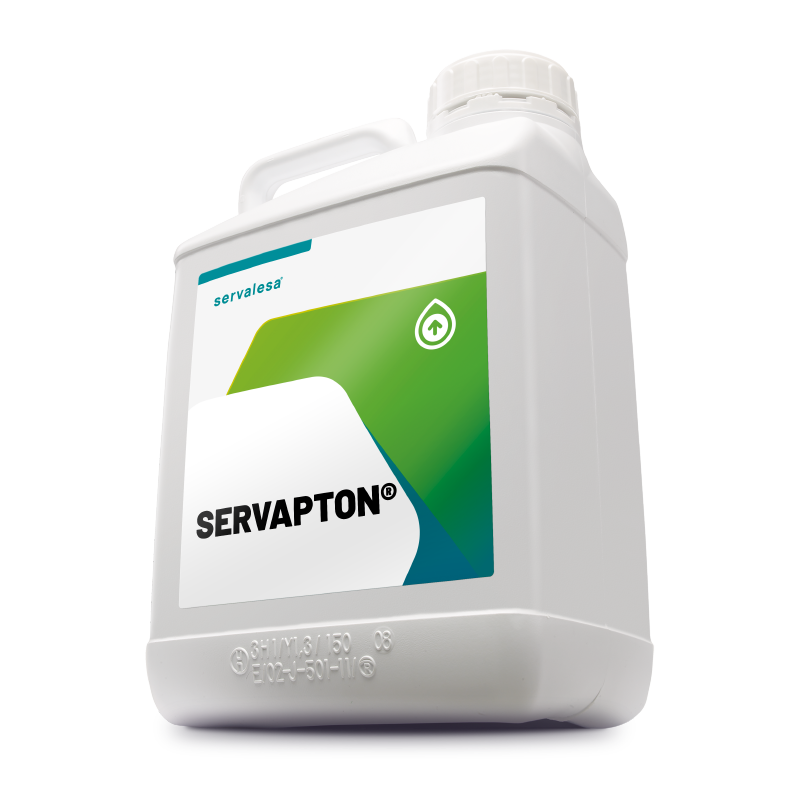
Moreover, it is essential an optimal formation of the vegetative organs of plants, stems, leaves, shoots…this is facilitated with SERVAPTON®. Our biostimulant of organic origin that provides the highest concentration of essential amino acids decisive in most of the processes of plant metabolism.
FLOWERING, FRUIT SET AND FRUIT TYING
In the agronomic management of horticultural crops, it is essential to promote the appropriate conditions to achieve an optimal balance between the vegetative and generative aptitudes of the plants. In order to achieve this desired balance, the biostimulation of metabolic processes related to the formation of floral organs, fruit set and fruit set or fruit setting is essential.
We need a viable and functional flower from the reproductive point of view that is the basis of fruits with an adequate quantity and quality of seed (plant organs essential in the production of phytohormones and natural compounds necessary for an optimal development of quality fruits) and settled on an aerial part with an adequate size and vigor to carry them to term.
In this aspect, we lay the foundations with our biostimulants FOLSER® and FOSFASER®.
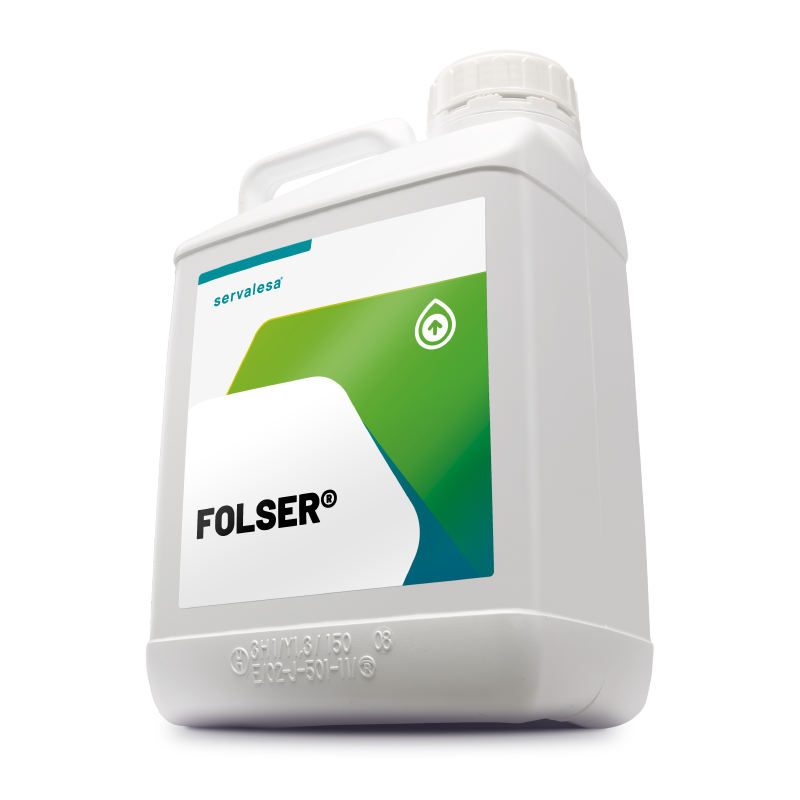
FOLSER® is a biostimulant with a unique composition developed by Servalesa with B5 vitamins, marine plant extracts and other essential compounds. With this product we carry out a bioactivation of the processes for an optimal floral development and fruit set, as well as we promote a balanced vegetative growth.
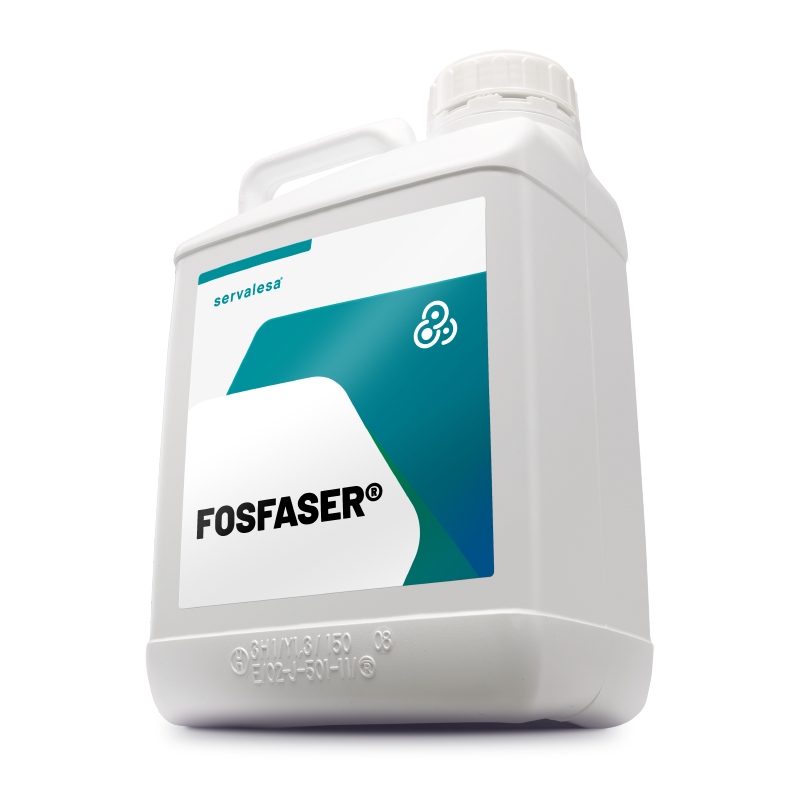
Furthermore, with FOSFASER®, we provide basic nutritional elements (phosphorus, potassium and magnesium) that are rapidly assimilated and consumed by plants to a large extent during the mentioned metabolic processes.
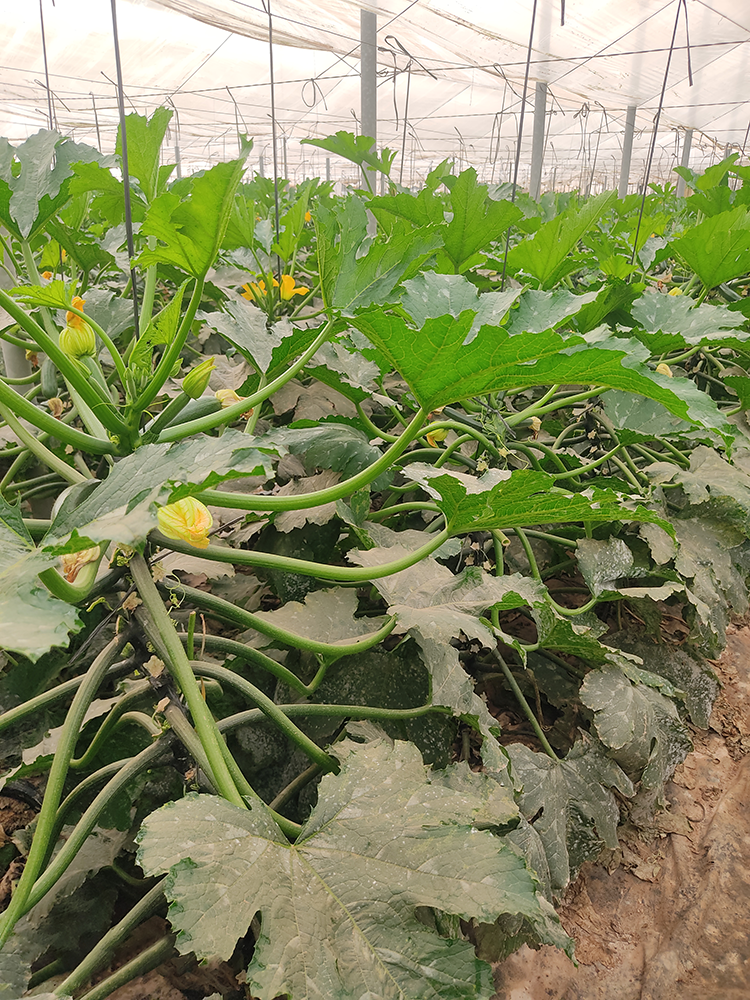
Detail of “Sweet bite” type mini-pepper and zucchini balanced plants.
Vegetative / generative.
FRUIT FILLING AND RIPENING
The final processes are fruit filling (fattening) and ripening. These are metabolic processes that consume a great deal of energy and make fruit the main sink for plants. In addition, most horticultural crops have an indeterminate cycle and growth, which means that all processes occur simultaneously in a crop at the same time. All of this makes the use of biostimulants essential.
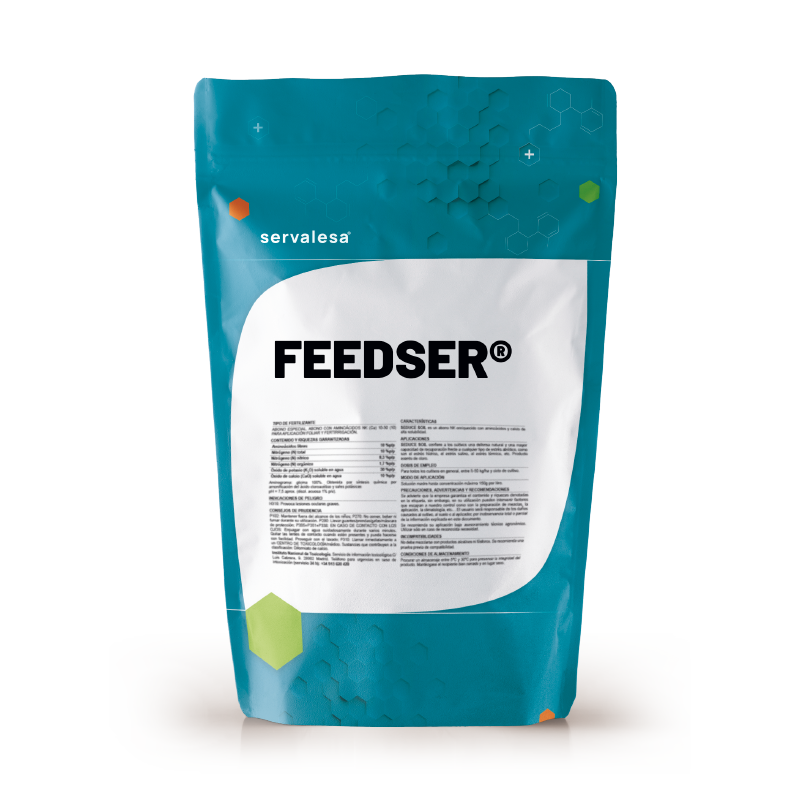
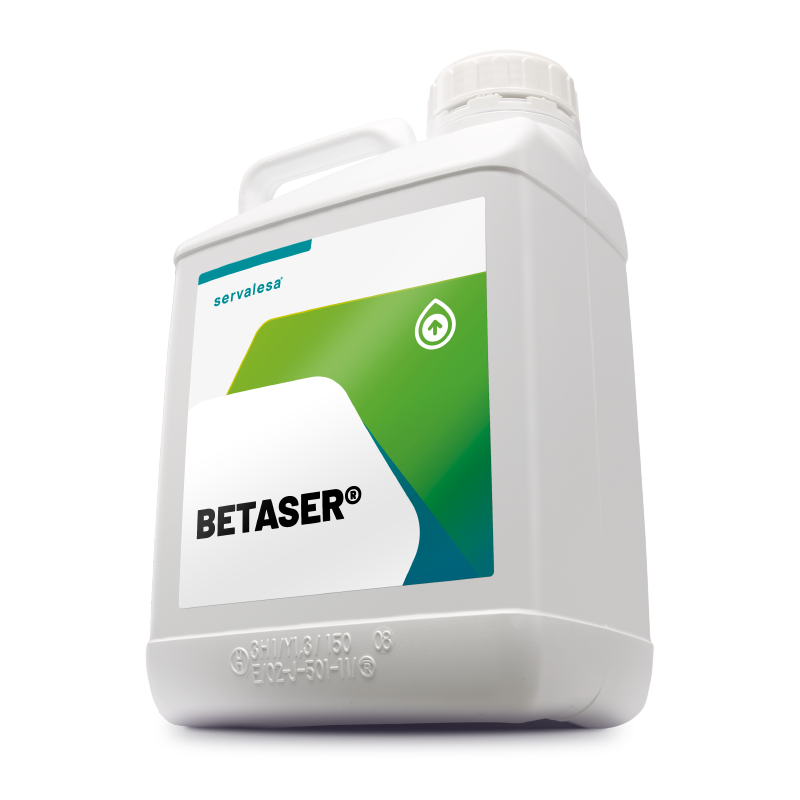
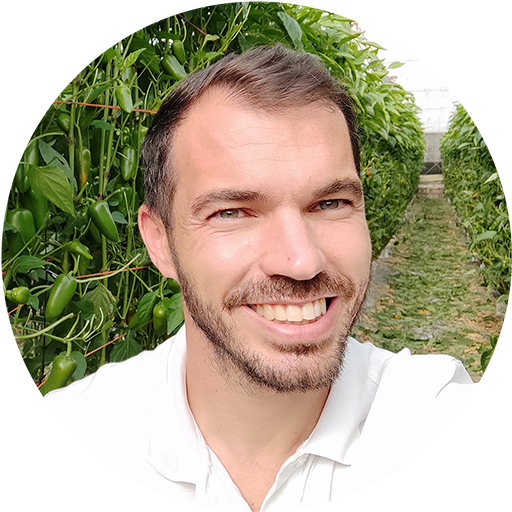
Francisco Joaquín Pérez
Technical Agricultural Engineer
Commercial Delegate Servalesa Zone Almeria and Coast of Granada

